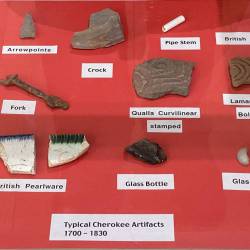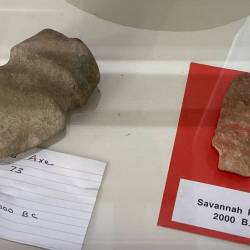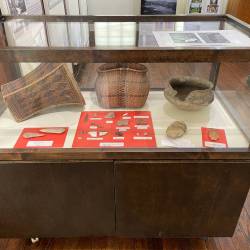Cherokee Presence: Learn of the original occupants to hunt and fish the Highlands Plateau
The Cherokee in Highlands
The unique connections between people and place make Highlands special. The indigenous people of western North Carolina—now represented through the Eastern Band of Cherokee Indians (EBCI) in Cherokee, North Carolina and the Cherokee Nation and United Keetoowah Band in Oklahoma, all consider western North Carolina their spiritual homeland. In fact, the original name for the Cherokee was Aniyunwiya, meaning The Principal People.
The Shadow of the Bear

The iconic shadow cast on Whiteside Mountain. Photo courtesy of Ed Shearin.
Whiteside Mountain is not only featured in Cherokee legend, but also well known by the rest of the world. Visitors come to witness the “shadow of the bear” that is cast across the mountain in the early fall.
Cherokee Legend: Spear-finger
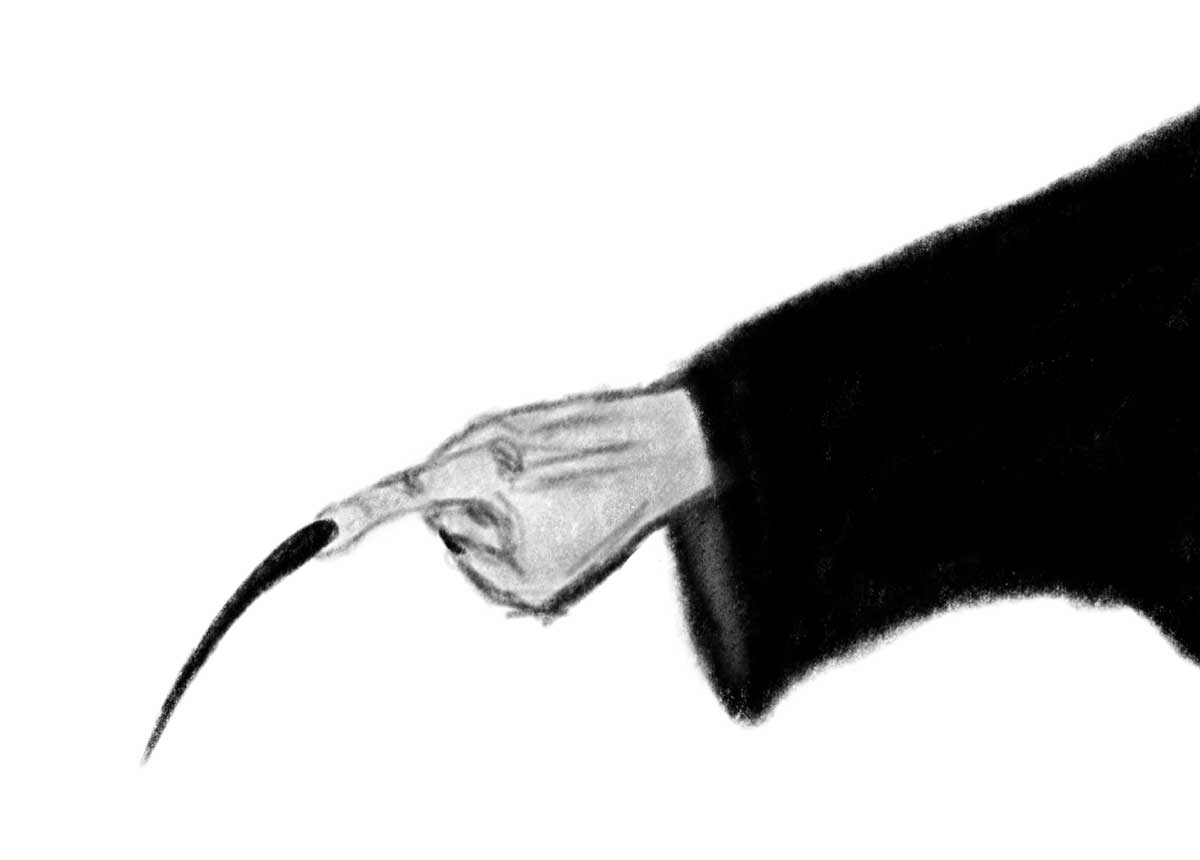
A fearsome witch from Cherokee legend. Original illustration by Brooklyn Brown.
The Cherokee also connect to Highlands through the Legend of Spear-finger, a shapeshifting witch with a spear for a finger who resides in the rugged and awe-inspiring Whiteside Mountain. Cherokee hunters eventually track Spear-finger down and kill her by shooting an arrow into her hand where her heart is located.
The Warriors of AniKituwha
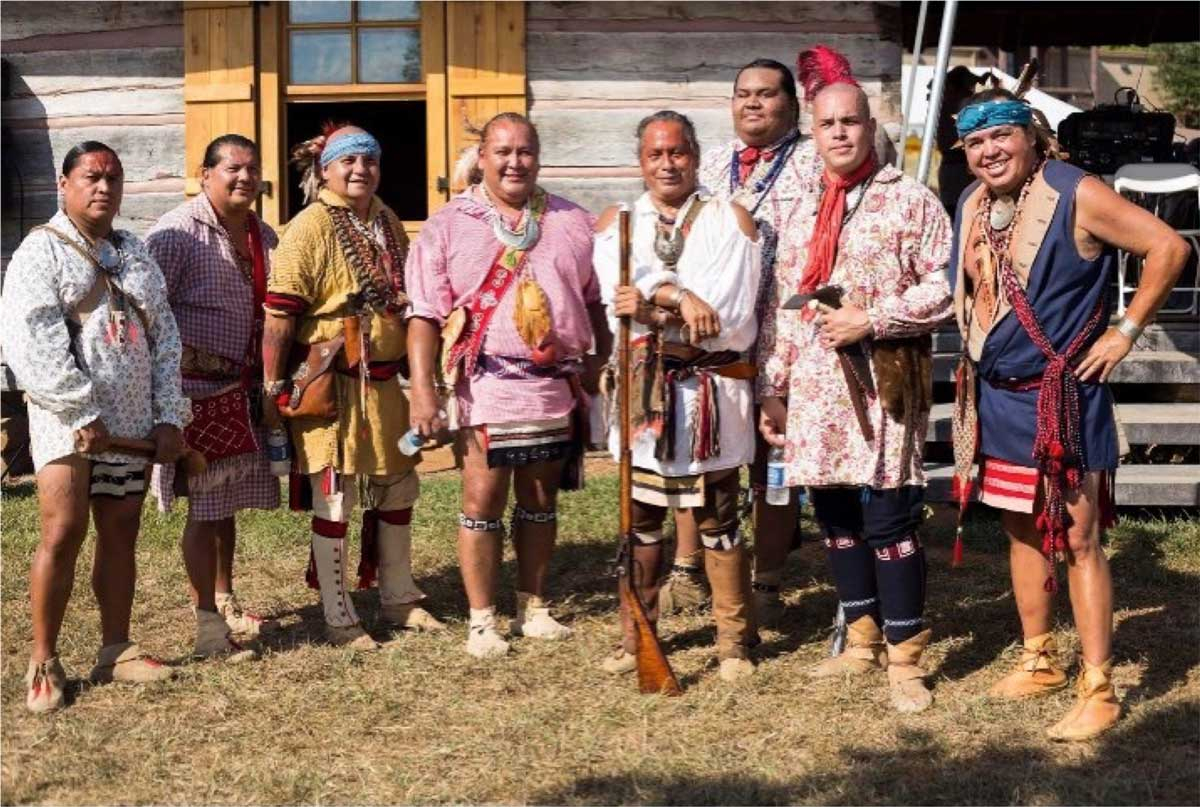
(Left to Right) Will Tushka, Daniel Tramper, Sonny Ledford, Ernest “Beaver” Grant, Bullet Standingdeer, Jarrett Wildcatt, Mike Crowe, Bo Taylor. Photo courtesy of the Museum of the Cherokee Indian.
Traditional Cherokee Dancers
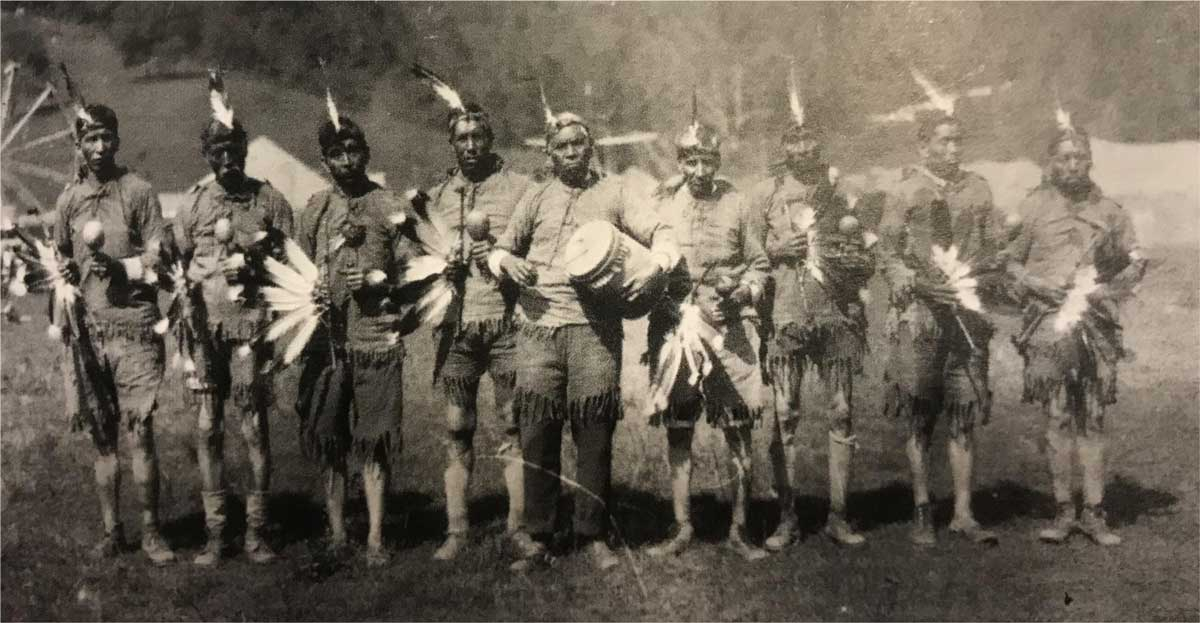
Performers at the Annual Cherokee Indian Fair in Cherokee, NC, circa 1940. Photo courtesy of Anna Fariello, Images of America: Cherokee.
Cherokee Land Use
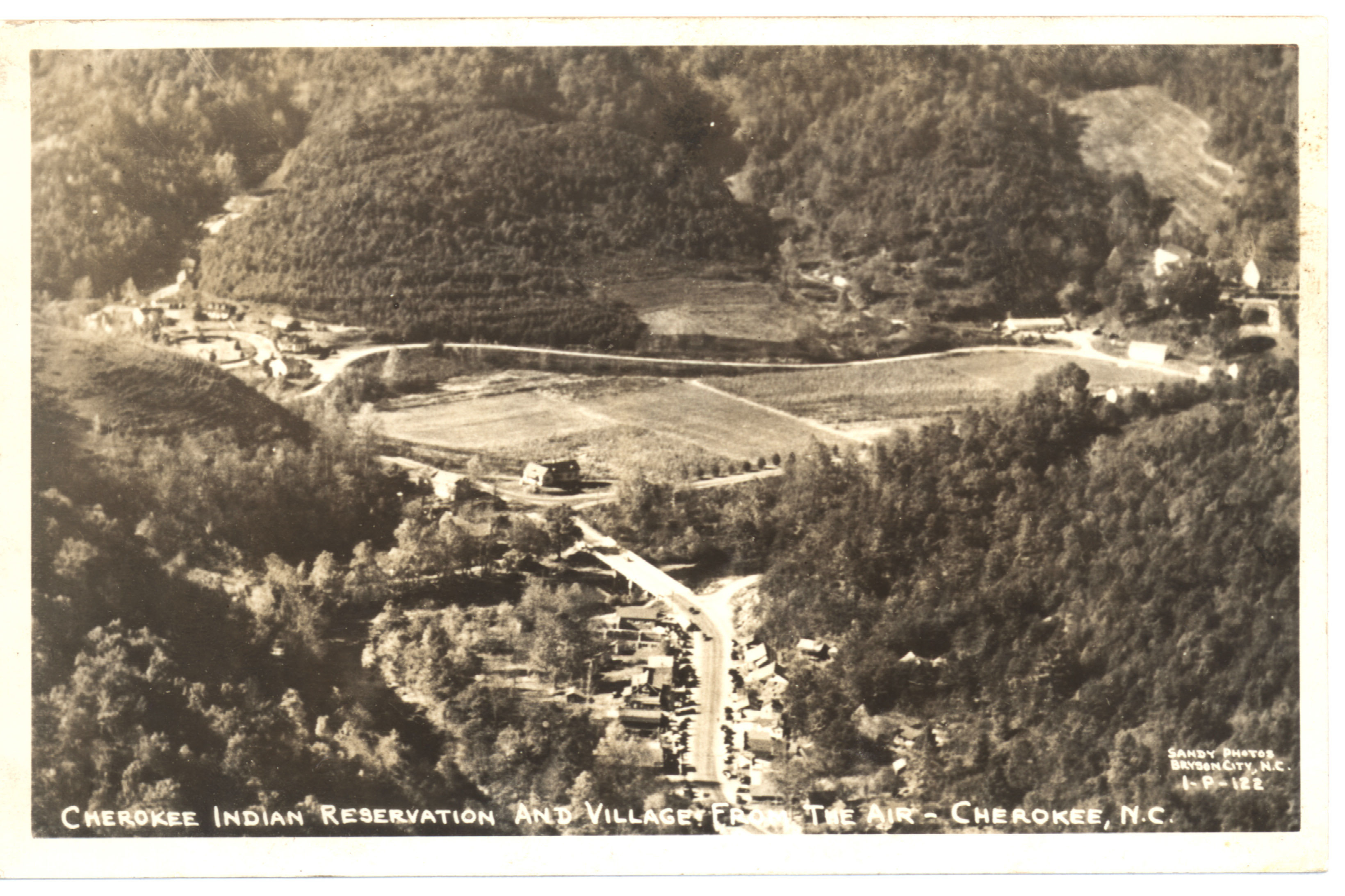
Cherokee River Valley: The town of Cherokee along the Oconaluftee River surrounded by the Great Smoky mountains in western North Carolina, circa 1949. Photo courtesy of Photo courtesy of the Collection of Hunter Library, Western Carolina University.
Cherokee Land Use: Traditionally, the Cherokee settled in the river valleys of the Great Smoky mountains, purposefully living in lower elevations for agricultural reasons, and near water for practical and spiritual reasons. They used the area that would become Highlands for hunting. Traces of ancient Cherokee hunting camps have been found here.

